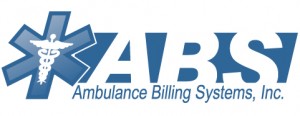Inherent Problems of Time Saving Set-ups
Inherent Problems of Time Saving Set-ups
This week ABS Inc. are going to continue the overview of procedural and coding issues faced by Fire Chiefs and EMS services in general, all of which typically lead to investigations, prosecutions and hefty fines.
While many good software programs exist there are others that are not up to the job and cannot assure full compliance to the requirements of Medicare or Insurance companies. The problem comes about when trying to establish settings or default codes in to fields or table tables in the program you are using. They can be time-savers for certain but unless done correctly, will inevitably lead to future issues and cautions needs to be exercised in the billing for the transport provided by ambulance services.
Regulations set out by Medicare show a requirement for answers to a set of questions for each transport, known as an ACR (Ambulance Certification Record). The topics cover are transport type, usage of restraints and condition of the patient when transported, were they in shock or unconscious at the time?
The majority of questions require a simple yes or no answer so departments typically set the defaults to one of these two responses. On the surface that appears to be a reasonable action, so what is the problem here?
If “no” is the default setting it is a good method to avoid fraudulent submission but it can lead to loss of payments for ambulance claims that are valid if the field is not correctly “checked”. Conversely, if “yes” is the default answer, and again the field is incorrectly checked, a fraudulent claim is almost inevitable as you are highly likely to be submitting false claims if the answers do not tally to the patient’s condition.
If you are experiencing any issues with your set up, codes, procedures or ambulance billing contact ABS Inc, we have the answers and solution.
Next week, ABS Inc will conclude this series regarding codes and procedures in the EMS environment, until then have a very merry Christmas.

